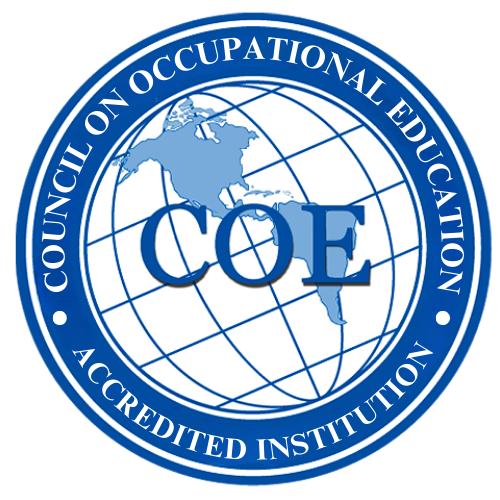Get the Skills to Become a Physical Therapy Aide in California

11-Month* Physical Therapy Aide Diploma Program in South Los Angeles, CA
Physical Therapy Aides provide help when a patient is receiving physical therapy working under the supervision of a physical therapist. Physical Therapy Aides help patients by ensuring that their therapy sessions are productive. They prepare for each session by getting the equipment ready, sterilizing equipment and instruments, and keeping treatment supplies in order.
In addition, Physical Therapy Aides provide physical support to patients that require assistance with moving on and off therapy equipment. Aides are a vital team member of Physical therapy offices performing clerical duties.
As a Physical Therapy Aide, you will learn all the key skills to build a strong foundation as a successful member of the rehab team. We give you the professional skills necessary to work in a busy physical therapy environment.
Healthcare Career College, located in Paramount, CA, serves Physical Therapy Aide students in Long Beach, Compton, Lakewood, Downey, Bellflower, Norwalk, Cerritos, the greater Los Angeles area and north Orange County.
The best way to see if Healthcare Career College is the right fit for you is to attend an information session. You can book an information session to get a true feel for what it’s like to be a part of the Healthcare Career College community. Schedule an information session now or Get more info.

Physical Therapy Aide Certification and Training
11 Month* Diploma | $60,050 median annual salary**
- 16% Job Growth Between 2024-2034**
- Graduates hired by massage clinics, hospitals, & health spas
- Advance into Exercise Physiology, Acupuncture, Chiropractic Examination and much more!
* Program length when completed in normal time
** https://www.bls.gov/ooh/healthcare/physical-therapist-assistants-and-aides.htm visited on October 31, 2025.
Become a Skilled Physical Therapy Aide
During this program, you will learn:
- Front and Back Office Clerical Duties
- Swedish Massage Training
- Deep Tissue Massage Therapy Training
- Massage Techniques for Sports Massage Applications
- ABC Adult School
- Five Keys Charter School
Is a Career as a Physical Therapy Aide Right for You? Take the Healthcare Career College ``Physical Therapy Aide Career Training Readiness Quiz``
This fun, online quiz takes 3-minutes to complete and you’ll get a personalized report. Identify your strengths and social style plus the training and positions you’re best suited for. Get Your Healthcare Career Training Readiness score now.
Diploma Features:
- Professional Hygiene and Ethics
- Sanitation and Safety
- Physiology
- Anatomy
- Massage Equipment and Safety
- Proprioceptive Neuromuscular Facilitation Techniques
Job Outlook
As long as people are active there will continuously be a need for Physical Therapy Aides and Massage Therapists. Physical Therapy Aides need to be around to assist when individuals experience specific injuries. Today’s growing population is exercising and moving more. People being more active in movement can lead to more physical injuries which leads to an increase in the need for Physical Therapy Aides.
The need for Physical Therapy Aides is on the rise. Employment of Physical Therapy Aides is projected to grow 16% from 2024-2034**, much faster than the average for all occupations.
Being enrolled in Healthcare Career College had opened many doors for me. As a student, I was always encouraged by the staff and my instructors every day. I was determined to make everyone proud, and learn as much as I could about ultrasounds. Everything that was available to us was extremely helpful and brought out every students potential.
Career Opportunities for Physical Therapy Aides
Upon completion of Physical Therapy Aide training, you will be qualified for the following positions:
- Physical Therapy Aide
- Customer Service (front office)
- Clinical Positions (back office)
You will be able to find work in the following areas:
- General Medical and Surgical Hospitals
- Nursing Facilities
- Hospice Care
- Board and Care
- Retirement Facilities
- Rehabilitation Hospitals
- Day Care Facilities for the Elderly
- Massage Clinics
- Health Spas
Median Pay: $28.87/hour**
View Physical Therapy Aide job postings in Paramount, CA on Indeed.com
Explore Other Healthcare Career Training Opportunities at Healthcare Career College
Medical Assistant
Medical Billing and Coding
Dental Assistant
Massage Therapy
Is a Rewarding Career in Physical Therapy Right for You? Get More Info…
If you’re interested in learning more about careers in Physical Therapy and exploring whether Healthcare Career College is right for you, fill out the form on this page to receive more information.
For immediate questions, call (562) 804-1239
*Program length when completed in normal time.
**Source: U.S. Bureau of Labor Statistics Occupational Outlook Handbook


